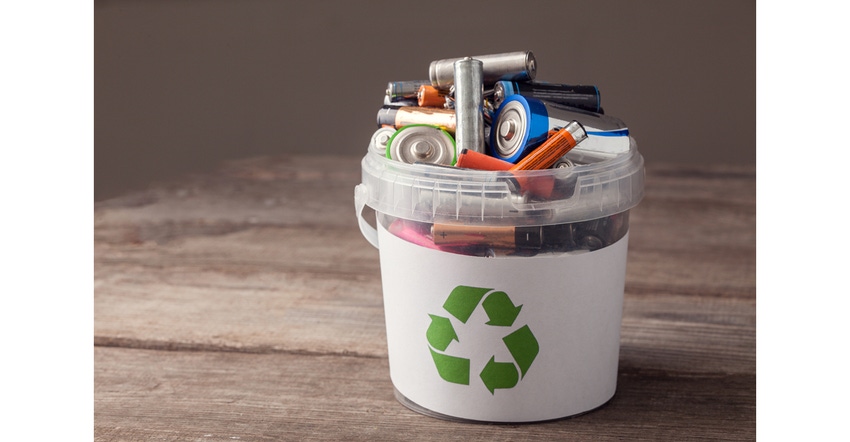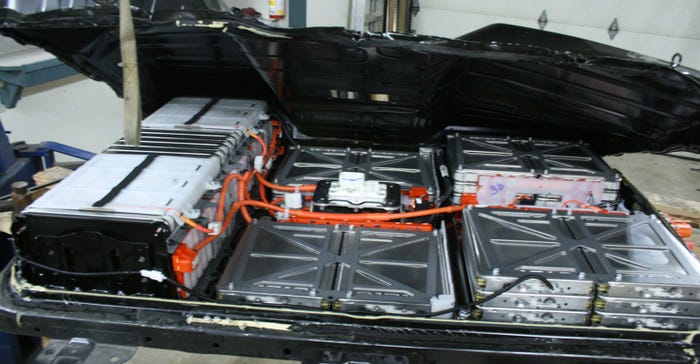EU & UK Boost Circular Economy with Battery Recycling Initiatives
From battery sustainability regulations to EV battery recycling collaborations, Europe’s circular economy is flourishing.

In today's fast-paced world, batteries have become essential to our daily lives. From powering smartphones and laptops to fueling electric vehicles, batteries play a crucial role in supporting our modern lifestyle. However, with the increasing demand for batteries, there is a pressing need to address the environmental impact of their disposal. Recycling batteries is a sustainable solution that reduces pollution, conserves valuable resources, and builds a greener future.
Many batteries contain toxic heavy metals, such as lead, cadmium, and mercury, that could be health hazards and contaminate the environment if not disposed of properly. Recycling batteries ensures that these harmful materials are safely extracted and disposed of in an environmentally friendly manner. Likewise, battery components—lithium, cobalt, and nickel—can be extracted and refined for use in new batteries or other applications.
By recycling batteries, we also reduce the need for extensive mining and extraction of these raw materials, conserving natural resources and minimizing the ecological footprint associated with their production. Recent developments in battery recycling and sustainability in the UK and Europe showcase the two regions' commitment to addressing the environmental impact of batteries.
EV battery recycling efforts in the UK
Altilium Metals—a UK-based battery recycling firm—has signed a non-binding Memorandum of Understanding (MOU) with Marubeni Corporation, a Japanese trading and investment group. The collaboration will enhance EV battery recycling efforts in Europe, including exploring opportunities to jointly develop EV battery recycling businesses in the UK and Europe, such as developing a UK supply chain of end-of-life lithium-ion batteries for recycling.

Altilium Metals CEO, Kamran Mahdavi, stated: “We look forward to working with Marubeni to give the UK energy security and develop sustainable, low carbon sources of technology metals needed for a green energy future in the UK and a sustainable transport future.”
Sustainability regulations for all battery types
The European Council aims to promote responsible battery manufacturing, usage, and disposal by establishing stringent standards and guidelines. Recently, they adopted a new regulation that will foster a circular economy by overseeing batteries throughout their life cycle. The regulation's primary objective is to ensure that the batteries used are safe, sustainable, and competitive.
The regulation will apply to all batteries, including all waste portable batteries, EV batteries, industrial batteries, starting, lightning, and ignition (SLI) batteries—used mostly for vehicles and machinery—and batteries for light means of transport (e.g., electric bikes, e-mopeds, e-scooters).
This comprehensive approach acknowledges the importance of sustainable practices from the initial production of batteries to their eventual recycling or disposal, thus minimizing their environmental impact and maximizing resource efficiency.

Teresa Ribera, Spanish minister for the ecological transition, stated: “Batteries are key to the decarbonization process and the EU's shift towards zero-emission modes of transport. At the same time, end-of-life batteries contain many valuable resources, and we must be able to reuse those critical raw materials instead of relying on third countries for supplies.”
The European Council’s regulation set the following targets:
1. Target for producers to collect waste for portable batteries:
63% by the end of 2027
73% by the end of 2030
2. Target for dedicated collection objective for waste batteries for light means of transport:
51% by the end of 2028
61% by the end of 2031
3. Target for lithium recovery from waste batteries:
50% by the end of 2027
80% by the end of 2031
4. Initially mandatory minimum levels of recycled content for industrial, SLI batteries and EV batteries:
16% for cobalt,
85% for lead,
6% for lithium
6% for nickel.
5. Recycling efficiency target for nickel-cadmium batteries:
80% by the end of 2025
Together, these developments reflect a holistic approach to managing recycling batteries. By fostering collaboration between battery recycling firms and industry partners and implementing robust regulations, the regions attempt to create a more sustainable and circular battery economy. Ultimately, these efforts reinforce Europe and UK's commitment to sustainable battery development.
About the Author(s)
You May Also Like





